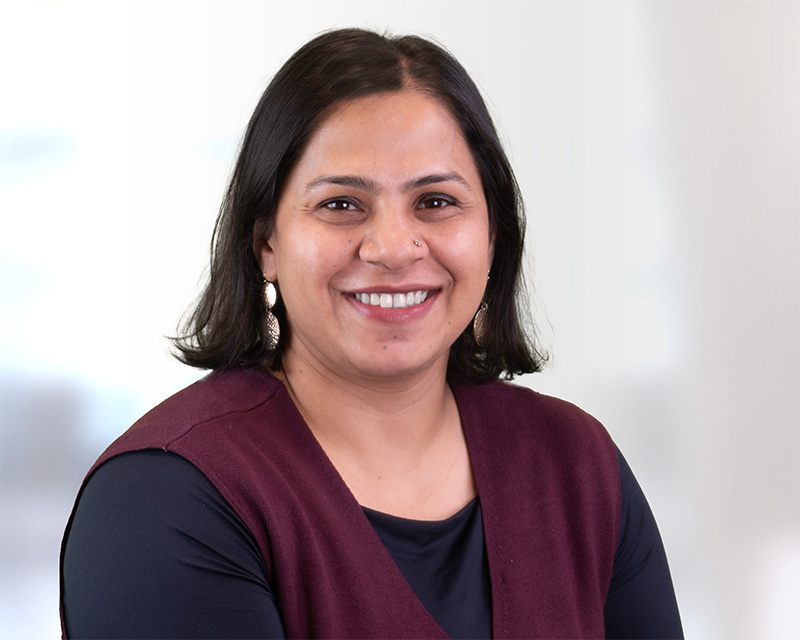November 9, 2016, New Delhi— It is with a sense of urgency that more than 200 researchers, government officials, civil society partners and others will meet in New Delhi today and tomorrow at the conference “Delivering for Nutrition in India: Learning from Implementation Research”. Participants in the conference will explore how to improve the scale and equity of actions for improving nutrition through the use of data, analytics and diverse forms of evidence.
India is making progress against undernutrition, as seen in the 2016 Global Hunger Index recently released by the International Food Policy Research Institute (IFPRI). Yet, millions of Indians, especially women and children, remain malnourished in multiple dimensions – thinness, anemia, and stunting are lingering problems, and now, are accompanied by an increasing burden of non-communicable diseases. To combat these grim statistics, and ensure that poor nutrition does not hold back human and economic development, it is imperative that the Indian government and other partners coordinate and implement evidence-informed strategies.
India’s policy environment for nutrition is robust, but data from recent surveys have started to shed light on the state-level variability in implementing actions for nutrition. States like Tamil Nadu, Kerala, Goa, Odisha and others have been successful at scaling up health and nutrition services, while states like Uttar Pradesh, Bihar, Madhya Pradesh, have lagged behind.
Implementation research, a growing field of research, is designed to provide insights into how to optimize strategies to deliver health and nutrition interventions with quality and equity . Given the variability in implementation of essential nutrition interventions across India, and finite resources to achieve good quality implementation, it is imperative that researchers and implementers partner to design and assess actions for at-scale impact on nutrition.
“India has clearly made progress towards improving nutrition, but the latest data highlights the stark variability in how nutrition and health programs are reaching women and children in India”, said Purnima Menon, Senior Research Fellow at IFPRI and director of POSHAN. “This must spur both researchers and implementers to ask questions, examine data and invest more in building evidence on how to close critical gaps in getting these core health and nutrition services to all women and children.”
The 2-day conference, hosted by POSHAN (Partnerships and Opportunities to Strengthen and Harmonize Actions for Nutrition in India), led by IFPRI, is an important platform for learning and facilitating discussion around the challenges that face India’s nutrition programs. Conference participants will share findings from their research across India. The conference will feature predominantly Indian speakers, including senior nutrition leaders from National Institute of Nutrition, the Nutrition Foundation of India, the Public Health Foundation of India, along with civil society leaders and speakers from IFPRI. “”Successful interventions on tackling malnutrition in all its forms, have seen important partnerships between civil society, government and academia, in India, and across the world. Interactions like these offer us an invaluable opportunity not just to get answers but also to seek the questions”, said Biraj Patnaik, principal advisor to the Supreme Court Commissioners on the Right to Food.
“The nutrition success story of universal salt iodisation (USI) in India, which we have been closely associated since 1956, has been supported actively by research to inform both policy and program implementation.”, said Dr. Chandrakant Pandav, a nutrition pioneer, and head of the department of community medicine at the All India Institute of Medical Sciences (AIIMS). He added, “Our work at AIIMS has provided us with insights into the value of implementation research and the importance of engagement between research and policy to address nutrition. We look forward to supporting India’s nutrition efforts with relevant implementation-focused research in the coming years and working with IFPRI and other partners in this endeavour”.
Sessions at the conference will highlight research findings on delivering nutrition services for pregnant and breastfeeding women, and on preventive and curative services for children. A session on financing for nutrition, a new area of research, features work on the costs of delivering a package of nutrition services, and on understanding how financing for nutrition is affected by the new fiscal environment. In a changing policy environment for nutrition where the health system and new platforms like self-help group programs are being tapped to ensure that the last mile is reached for nutrition, the conference will also showcase the evidence for how to reach mothers and children across India in diverse ways.
In support of the conference goals and agenda, Dr. Soumya Swaminathan, Director General of the Indian Council of Medical Research noted, “Policy and program choices for nutrition are most effective if they are based on evidence. In the context for implementing actions across the diversity of India, implementation research that tries to answer questions of how to ensure better scale, reach and effectiveness of interventions, is therefore, crucial. We look forward to supporting the development and execution of a policy-relevant implementation research agenda for nutrition along with India’s premier national research institutions and the international research community in the coming years”.
###
The International Food Policy Research Institute (IFPRI) seeks sustainable solutions for ending hunger and poverty. IFPRI was established in 1975 to identify and analyze alternative national and international strategies and policies for meeting the food needs of the developing world, with particular emphasis on low-income countries and on the poorer groups in those countries. www.ifpri.org.
POSHAN (Partnerships and Opportunities to Strengthen and Harmonize Actions for Nutrition in India) is a 4-year initiative that aims to build evidence on effective actions for nutrition and support the use of evidence in decision making. It is supported by the Bill & Melinda Gates Foundation and led by IFPRI in India. For more information, please visit http://poshan.ifpri.info/
Contact:
New Delhi: Vaishali Dassani, IFPRI, v.dassani@cgiar.org
Washington: Drew Sample, IFPRI, D.Sample@cgiar.org



